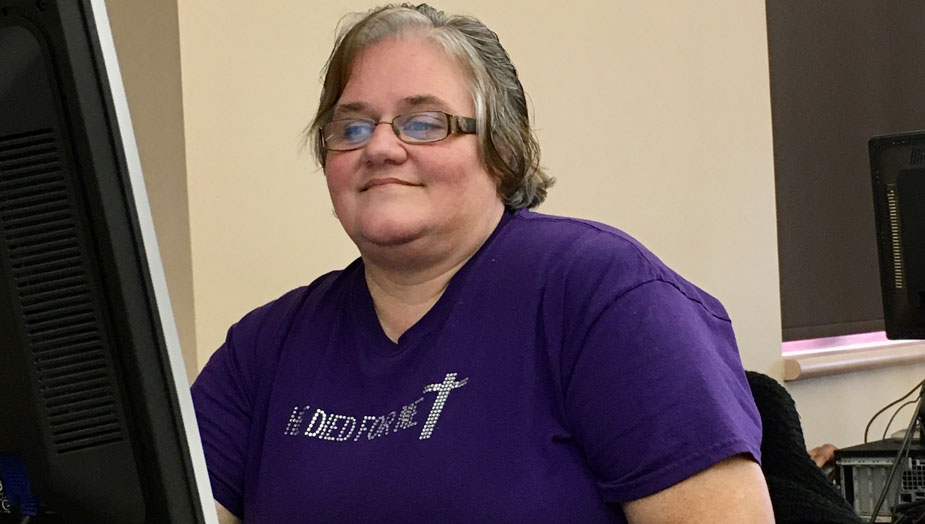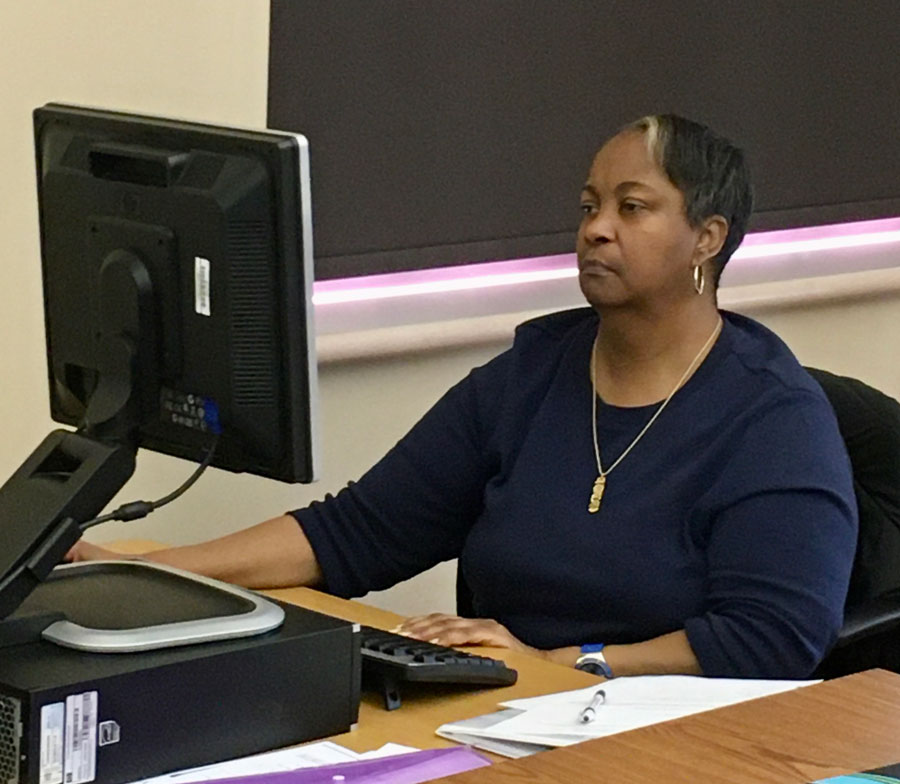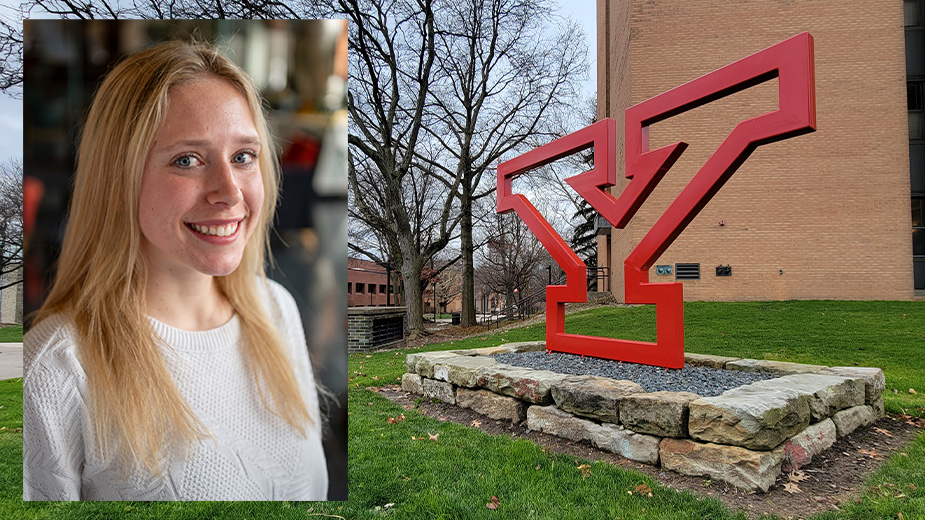YWCA Programs Lift Women Out of Homelessness
YOUNGSTOWN, Ohio – Denise McGrady’s life is fairly typical for many women who were born in the 1960s: marriage, a house, children and a sprinkle of odd jobs to supplement her family income.
“I did what I thought you’re supposed to do, get married and have children. I thought, ‘This is best I’m going to get,’ ” she says.
But nearly 20 years and five children later, she found the courage to end a marriage she says was littered with verbal abuse to her and physical abuse toward the kids.
“I thought I was doing what was right for the kids. I wasn’t thinking about me, just that I can endure this for the kids,” she recalls. “Really, when I think about it now, I should have got out immediately.”
With her self-esteem beaten, she found it easier to walk away from the house she loved. So, the western Pennsylvania native moved to Florida to live with her brother.
And that’s where her story became far from normal. After four years of trying to make ends meet in Florida, she wanted to return to Youngstown, and a place where she found solace through Victory Christian Church.
“I contacted a friend and was supposed to stay with them so I could get back on my feet,” McGrady says. “As soon as I got back to Youngstown, they said ‘No, we can’t do this.’ ”
Estranged from most of her children because of the divorce and with two sons in prison, she had nowhere to go and ended up at the Rescue Mission of the Mahoning Valley.
“When I got there, I asked God, ‘Why is this happening,’ you know, because I’ve never been homeless,” McGrady says looking down at her folded hands. “But things do happen to good people.”
At age 52, McGrady is like many older adults in the region, trying to enter the workforce for the first time or re-enter the workforce. Older adults have become a common demographic of people enrolling in training programs explored as part of The Business Journal’s 15-month Brain Gain editorial program.
McGrady also fits into another demographic in the region: the homeless population. According to Lee DiVita, director of Project for Assistance in Transition from Homelessness, PATH, at Help Network of Northeast Ohio, lack of affordable housing in the Mahoning Valley is a main contributor to homelessness.

From July 1, 2019, to the present, the PATH team has identified 330 people as being homeless in Trumbull and Mahoning counties. That number accounts for people living in the streets as well as homeless shelters. The PATH programs assists people to get into training programs as well as find jobs and housing. Of those 330 people, 200 agreed to be enrolled in PATH, and 138 of them have been connected to services.
For McGrady, she had completed a disciple program at the Mission in April 2019, when a client adviser’s question gave her new life at the age of 52.
“Randomly one day she asked, ‘What would you think about coming to work here?’ I liked that idea, but I never saw myself being able to do that,” McGrady recalls. “I wanted to work at the Mission because I just love helping people.”
McGrady was referred to a transitional housing program at YWCA of the Mahoning Valley. She met Christy Bryan, the coordinator, who is assisting McGrady with skills to find employment and locate permanent housing.
McGrady was in her new apartment when the Rescue Mission called about a job. After three interviews, she was hired for client intake and office work.
“I have seen so many great things since then. I have to admit, it’s been the best years of my life,” she says.
McGrady received her GED last year and recently finished a job skills program at YWCA.
Bryan says the jobs skills training is a free program offered monthly at YWCA. It helps candidates create resumes, learn digital skills, soft skills and interview techniques, teaches financial literacy and provides resources to aid job searches.
Bryan says the YWCA is working on expanding its job skills training to include one-year follow-up services, which help people achieve long-term success with employment. Graduates of YWCA’s job skills training receive a $100 stipend and if they complete further requirements, are eligible for another $50.
“We haven’t designed all of the details yet, but helping people with other social or legal or domestic barriers are in the works, as well as building community partnerships for a job shadowing portion,” Bryan says.
McGrady and other women in transitional housing can stay for eight months, occasionally a year if needed.
“Denise is doing so well. She is determined to make it,” Bryan says. “She is doing everything she needs to do.”
Bryan says women must attend group sessions that focus on life skills, attend the YWCA’s job skills three-week training and participate in recovery groups, if needed. They must be clean and sober to qualify for transitional housing. They are held to curfews and visitors are not permitted.
In teaching the course and in the housing program, Bryan says she has noticed a trend that she didn’t see two years ago. She says many of the participants are older women.
Bryan says she was expecting more participants who didn’t have a high school diploma or people with a GED coming into the skills training, but found a different dynamic.
“What I was surprised at is I have a lot of older people. I would say more are over 50 in both of my programs,” she says.
“They’re unemployed, don’t know what to do, don’t know how to find a job and don’t have any computer skills. I’ve seen much more of those than I thought there would be,” she says. “Out of my last six clients I’ve had, only two are under 40,” Bryan says. “It wasn’t like that even two years ago when I started.”
Rosa Williams of Struthers is 63 and wants to improve computer skills and learn about job resources. After 15 years working as a state trained nursing assistant, STNA, her body is feeling the effects of taking care of other people. Lifting people and helping with mobility left her with back injuries.

Williams was working at Vantage, formerly Mature Services, a program for adults 55 and older who are re-entering the workforce. It offers personalized, paid training to older adults to get started with hands-on experience through a variety of programs.
Vantage can place workers in companies with the chance to he hired full time. Williams left when the program’s four-year term to be with the company ended.
“I’m eager to get back into the workforce,” she says. “I have some experience with computers, but want to learn more. I’ve done some other training in the past and I’m interested in getting into something like medical billing,” Williams says.
Williams and McGrady rely on public transportation. McGrady is planning for the day she won’t need it.
“I want to advance to full time where I’m at because this is the ideal job. This is what I’ve wanted for a lot of years,” McGrady says.
“My agenda is to get my own place and car and seeing the relationship between me and my children totally restored. Ultimately, I want to own a home again.”
Copyright 2024 The Business Journal, Youngstown, Ohio.


